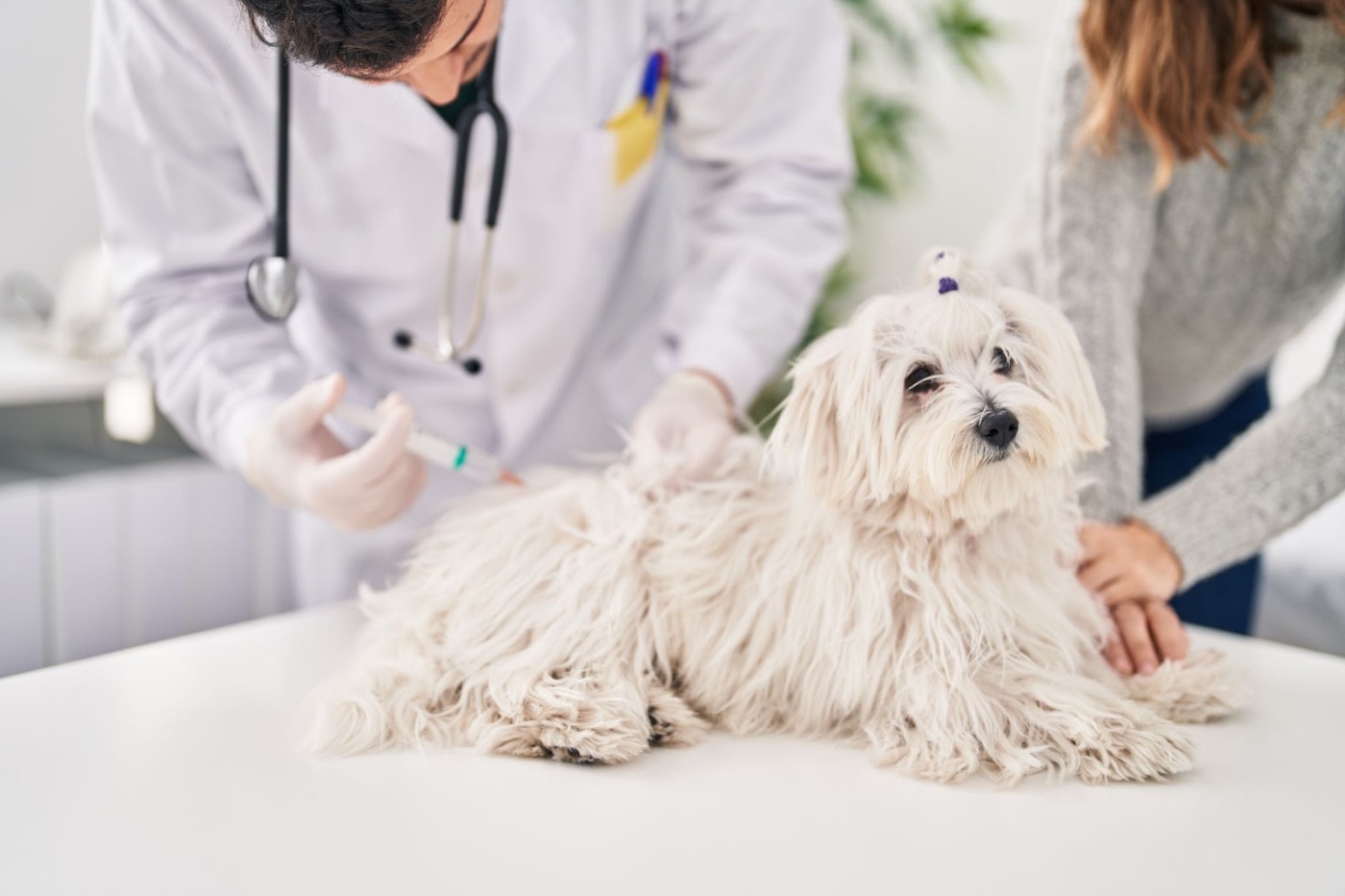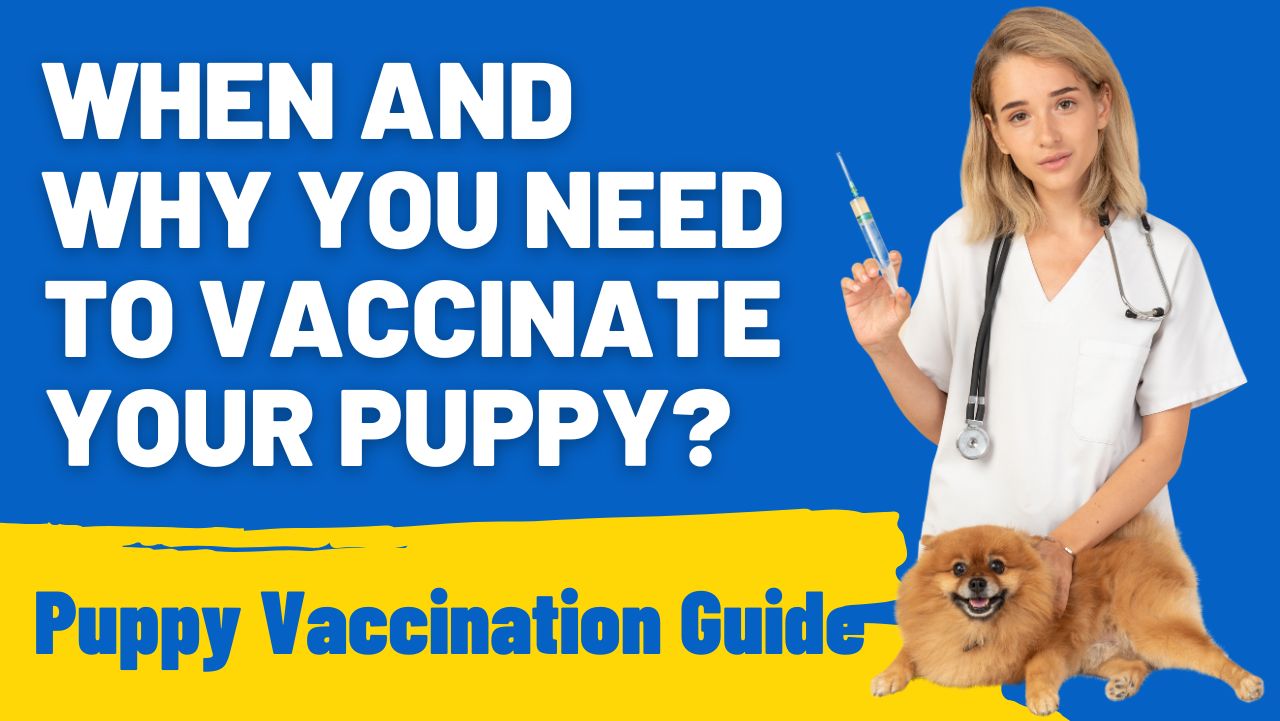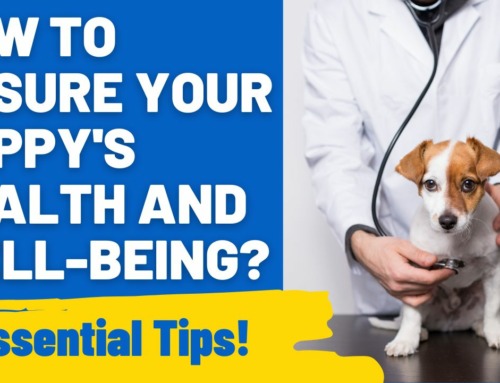One of the most crucial aspects of puppy care is understanding the importance of vaccinations.
Deciding when and how to vaccinate your puppy is not just a routine part of pet ownership; it’s a vital step in safeguarding their health and wellbeing.
This article offers key insights about puppy vaccinations, offering guidance on when to start, which vaccines are essential, and how to manage the entire process for the best care of your pet.
What Are Puppy Vaccinations and Why Are They Important?
Vaccinations for puppies are crucial interventions in their early life stages, aimed at protecting them from various infectious canine diseases that can be life-threatening.
These vaccinations work similarly to vaccines in humans. They contain antigens, which mimic disease-causing organisms in a dog’s body, but don’t actually cause illness.
Instead, these antigens stimulate the puppy’s immune system to build a response. As a result, if the puppy ever encounters the real disease, its immune system is primed to recognize and fight it off effectively.
Understanding How Vaccinations Protect Your Puppy
The significance of puppy vaccinations extends beyond individual health. It plays a vital role in the broader aspect of dog health by contributing to herd immunization.
This is particularly important in preventing the spread of contagious diseases among dog populations.
Moreover, some diseases that puppies can be vaccinated against, such as rabies, pose a risk to humans as well, making vaccinations a public health issue.
For dog owners, understanding and administering these vaccinations means they are taking proactive steps in preventative healthcare for puppy development.
It’s not just about protecting the puppy but ensuring it grows into a healthy, robust dog capable of leading a full and active life.
Interested in reading our post Can You Use Polysporin on Dogs: (Veterinarian Answer)?
When Should You Start Vaccinating Your Puppy?

Deciding when to start vaccinating a puppy is a critical step in ensuring their long-term health and well-being. This decision is closely linked to understanding the stages of a puppy’s immune system development.
From birth, puppies receive antibodies from their mother’s milk, which provide temporary immunity against various diseases.
However, as they grow, this natural immunity diminishes, making them vulnerable to infections. It’s at this juncture that vaccinations play a pivotal role.
The Ideal Vaccination Timeline
The journey towards a fully protected puppy begins at around six to eight weeks of age. This is when the antibodies they receive from their mother start to fade, and their own immune system must begin to take over.
The vaccinations administered at this stage are designed to introduce the puppy’s immune system to potential pathogens in a safe and controlled manner.
This early initiation is crucial in building a strong foundation for the puppy’s immune system.
Following the initial vaccination, a series of booster shots are typically recommended. These boosters are given at set intervals, usually every three to four weeks, until the puppy is around 16 weeks old.
This repeated exposure helps the puppy’s immune system to fully recognize and respond to these pathogens, ensuring long-term protection.
The specific timeline for these vaccinations can vary depending on the puppy’s health, the environment, and the veterinarian’s recommendations.
It’s essential for puppy owners to adhere to this schedule to ensure their pet receives the full spectrum of protection.
What Are Core Vaccines for Puppies?
Vaccinating puppies is an essential aspect of their early healthcare regimen. Core vaccines or preventive medicines are recommended for all puppies regardless of their geographical location, lifestyle, or breed.
They protect against the most common and severe diseases that can affect dogs.
Essential Vaccines for Every Puppy
Core vaccines typically include protection against several critical diseases:
- Canine Parvovirus: A highly contagious and potentially fatal virus, especially dangerous for puppies. It affects the gastrointestinal tract and can cause severe vomiting and diarrhea.
- Canine Distemper: A serious viral illness affecting the respiratory, gastrointestinal, and nervous systems. It can lead to severe neurological complications and is often fatal.
- Hepatitis (Adenovirus): This vaccine protects against canine adenovirus type 1, which causes hepatitis, and type 2, which contributes to the kennel cough complex.
- Rabies: A fatal viral disease that affects the central nervous system. It’s transmissible to humans, making vaccination a legal requirement in many areas.
Each of these vaccines plays a vital role in the overall care and health of puppies. They are designed to prime the puppy’s immune system against these common and dangerous diseases, ensuring they are protected as they grow into healthy adult dogs.
Dog owners should consult with their veterinarian to understand the timing and frequency of these vaccinations, as part of a comprehensive puppy care plan.
Are Non-Core Vaccines Necessary for Your Puppy?
While core vaccines are essential for all puppies, non-core vaccines are administered based on a puppy’s specific risk factors such as their environment, lifestyle, and travel habits.
These vaccines protect against diseases that are not necessarily a threat to all dogs but can be crucial for some.
Tailoring Vaccination to Your Puppy’s Lifestyle
The decision to administer non-core vaccines should be made in consultation with a veterinarian. Factors to consider include:
- Exposure Risk: If a puppy is likely to be exposed to certain diseases due to geographical location, lifestyle, or frequent travel, specific non-core vaccines may be recommended.
- Lifestyle: Dogs that frequently socialize with other dogs in parks or attend doggy daycare might need additional protection against certain diseases like Leptospirosis or Bordetella (kennel cough).
- Local Disease Prevalence: Some diseases are more common in certain areas. If a puppy lives in or will travel to these areas, vaccination against these diseases might be necessary.
This tailored approach ensures that a puppy is not over-vaccinated with unnecessary vaccines while still receiving all the protection they need.
Understanding the Puppy Vaccination Schedule
A Comprehensive Guide
The puppy vaccination schedule is a critical roadmap for ensuring the health and well-being of your new pet.
This schedule is designed to provide immunity at key stages of a puppy’s development, protecting them against various diseases. Here’s a detailed overview based on vaccination age:
- 6-8 Weeks: At this age, puppies receive their first series of vaccines. This usually includes vaccines for distemper, parainfluenza, and in some cases, measles. These vaccines kickstart the puppy’s immune system to develop antibodies against these diseases.
- 10-12 Weeks: During this period, the puppy receives a booster shot for the DHPP vaccine, which covers distemper, hepatitis, parvovirus, and parainfluenza. These boosters are crucial as they strengthen the immunity provided by the initial vaccines.
- 12-24 Weeks: The rabies vaccine is administered at this stage. The timing for the rabies vaccine can vary based on local regulations and the type of vaccine used.
- 14-16 Weeks: A final booster for the DHPP vaccine is given. This is important for ensuring long-term immunity against the four diseases.
- Annually: After the initial series, annual boosters for DHPP and rabies are recommended to maintain the dog’s immunity throughout its life.
Standard Puppy Vaccination Schedule
| Age | Vaccine Type | Frequency |
| 6-8 Weeks | Distemper, Parainfluenza, Measles (optional) | Initial Dose |
| 10-12 Weeks | DHPP (Distemper, Hepatitis, Parvovirus, Parainfluenza) | Booster |
| 12-24 Weeks | Rabies | Initial Dose |
| 14-16 Weeks | DHPP | Final Booster |
| Annually | DHPP, Rabies | Annual Booster |
Managing Puppy Vaccination Side Effects
What to Expect and How to Respond
What to Expect and How to Respond
Like all medical treatments, vaccinations can sometimes lead to side effects in puppies. Most of these are mild and short-lived, but it’s important to know what to expect and how to respond.
Common Side Effects:
- Mild Fever: A slight increase in temperature is a normal response to vaccination.
- Lethargy: Feeling a bit low-energy or sleepy after a vaccine is common.
- Appetite Loss: Some puppies may eat less for a day or two following their shots.
- Swelling at Injection Site: A small, firm swelling may develop where the shot was given, which usually disappears in a week.
When to Seek Veterinary Care:
- If the swelling at the injection site increases or persists beyond a week.
- Severe lethargy or unresponsiveness.
- Signs of an allergic reaction, like difficulty breathing, hives, or severe swelling.
How to Respond to Mild Side Effects:
- Provide a quiet, comfortable space for your puppy to rest.
- Ensure they stay hydrated.
- Monitor their behavior and symptoms closely.
Remember, while side effects can be concerning, the benefits of vaccinations in preventing serious diseases far outweigh these temporary discomforts. Always discuss any concerns or questions with your veterinarian, as they are best equipped to guide you through managing and understanding vaccine reactions in your puppy.
How to Prepare for Your Puppy’s Vaccination Appointment?
Tips for a Smooth Experience
Preparing for a puppy’s vaccination appointment is key to making the experience as stress-free as possible for both the puppy and the owner. Here are some practical tips:
- Familiarize Your Puppy with Car Rides: If the vaccination appointment involves a car journey, get your puppy used to short rides beforehand to reduce stress.
- Bring Comfort Items: A favorite toy or blanket can provide comfort and a sense of security for your puppy during the visit. Some of the best comfort items you can bring with them to the vet are the HoundGames Dog Puzzle Toys and the HoundGames Puppy Toy Mat with Teething Chew Toys.
- Fast Before the Appointment: Check with your vet if your puppy should fast before the appointment, especially if sedation might be needed.
- Carry Medical Records: Bring any previous health records of your puppy, including any past vaccinations or treatments.
- Prepare Your Questions: List any questions or concerns you might have about vaccinations or your puppy’s health in general.
- Arrive Early: Give yourself and your puppy time to settle down before the appointment.
- Keep Calm: Puppies often pick up on their owner’s emotions. Staying calm can help your puppy remain relaxed.
- Aftercare Plan: Ask your vet about what to expect post-vaccination and how to care for your puppy.
Continuing Care: Beyond Puppy Vaccinations

Ensuring Lifelong Health and Pet Wellness
Completing the initial puppy vaccinations is just the beginning of a lifelong healthcare journey.
Continual care and attention to a dog’s health are crucial for their overall well-being.
- Adult Dog Vaccinations: As your puppy grows into an adult dog, they will need regular booster shots. The frequency and type of these boosters can depend on your dog’s lifestyle, health, and the diseases common in your area.
- Regular Vet Check-Ups: Annual wellness exams are essential. These visits not only allow for necessary vaccinations but also enable early detection and treatment of potential health issues.
- Parasite or Disease Prevention: Regularly protect your dog against parasites like fleas, ticks, and worms. Your vet can recommend the best preventative measures.
- Maintain a Healthy Diet: A balanced diet appropriate for your dog’s age, size, and activity level is crucial for maintaining good health.
- Exercise: Regular physical activity is vital for keeping your dog fit and preventing obesity-related health issues.
- Dental Care: Don’t overlook dental health. Regular brushing and dental check-ups can prevent serious oral diseases.
- Mental Stimulation: Mental health is as important as physical health. Toys, training, and playtime keep your dog mentally stimulated and happy.
- Grooming: Regular grooming, including brushing, nail trimming, and ear cleaning, helps prevent skin and ear infections.
- Tailored Health Care: As your dog ages, their health care needs will change. Regularly discuss with your vet any adjustments needed in their care.
Note that a proactive approach to your dog’s health can lead to a longer, happier life together.
Regular check-ups, coupled with a healthy lifestyle, lay the foundation for a lifetime of wellness.
Conclusion
Understanding puppy vaccinations is a significant part of responsible pet ownership.
By ensuring you vaccinate your puppy at the right times with the appropriate vaccines, you’re setting the stage for a healthy, happy life for your pet.
Vaccinations go beyond the initial puppy stages, extending into adult dog care with regular boosters and check-ups. A well-vaccinated puppy not only enjoys better health but also contributes to a safer pet community.
With the insights provided in this article, puppy owners can feel equipped and confident in making informed decisions about their pet’s health, ensuring a long and joyous companionship.




